Our structural pest control service covers most pests encountered in New England. Pest control and extermination are essential to protect your property. Your structure is simply a home for pests. Even the coldest day our area won’t kill structural pests. Our technicians are trained to find and eliminate pest problems. Greenhow training starts with our internal training on pest biology. Next, the training progresses to outside courses in integrated pest management. Finally, the training culminates in the achievement of Associate Certified Entomologist (ACE). The number one ant we deal with is the Carpenter ant.
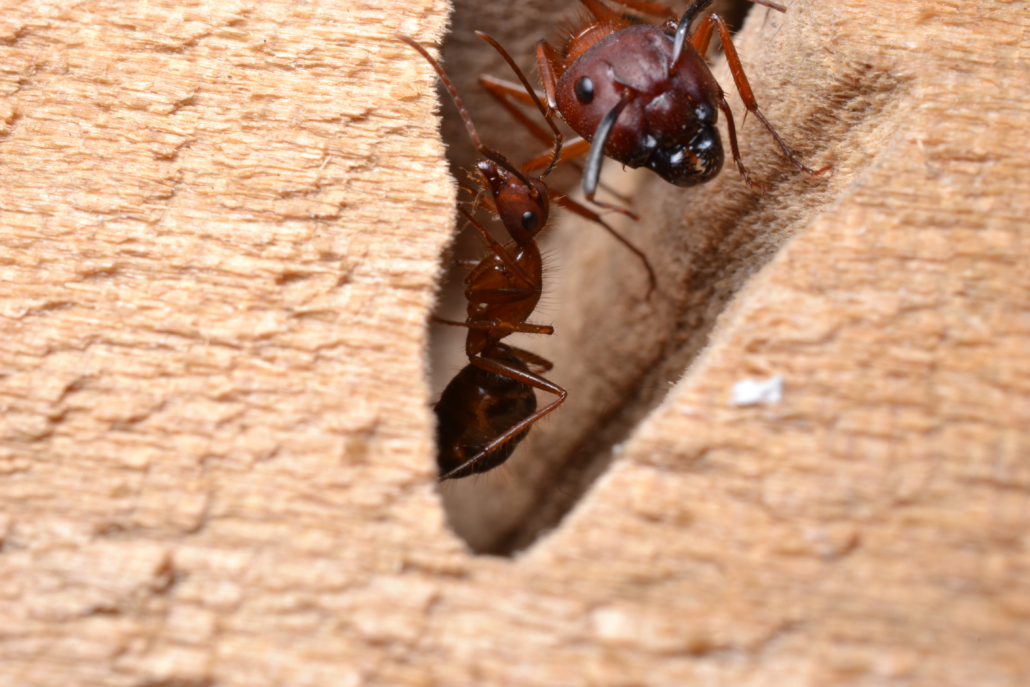
Biology
Carpenter ants in early March will show up inside in New England from nests in the wall. A typical nest is on the inside of the insulation and on a south-facing wall. Solar exposure makes afternoon ant activity more common. Carpenter ant start nests in wood that is wet or has been wet. Just like you can always see a water stain on wood that has gotten wet ants can also always find wood that has gotten wet. In the photo near here carpenter ants are infesting a tree with center rot by excavating the knot hole.
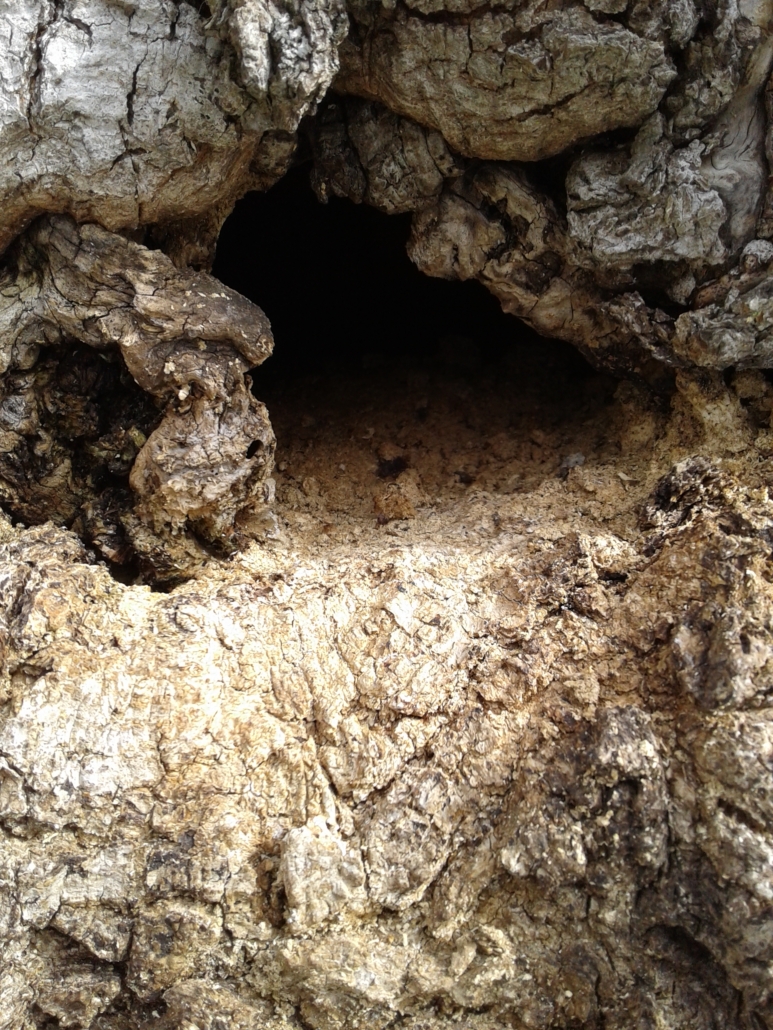
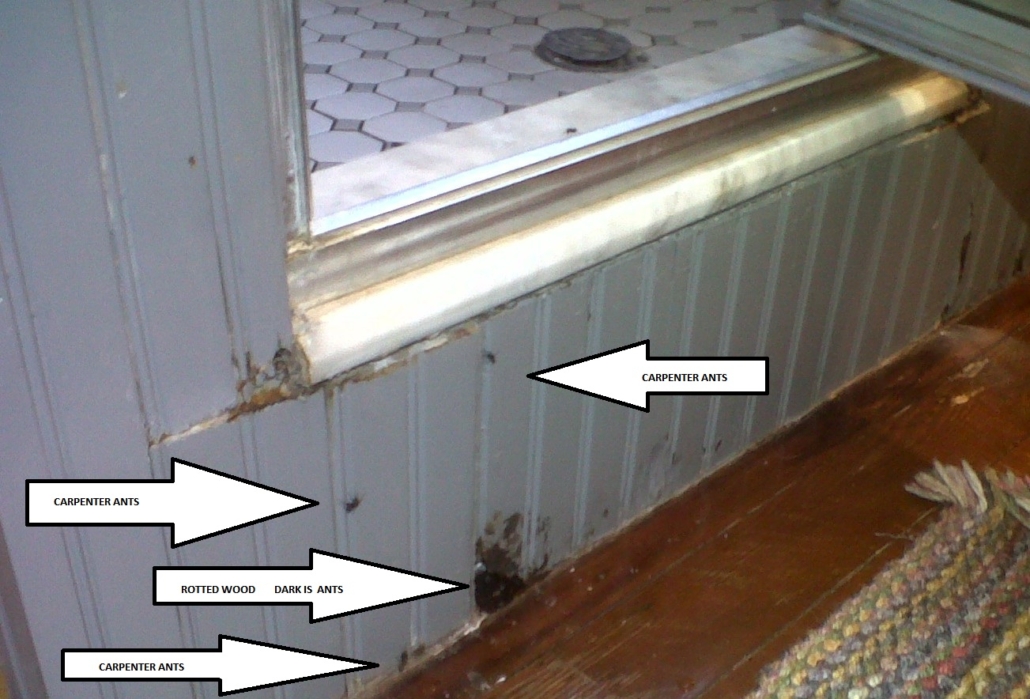
Wet wood is no good.
In a single family home, wet wood can be found around windows and doors with bad or compromised flashing. Also around and under sinks, tubs or toilets that have ever leaked. Pay special attention to tiled showers. The nearby photo shows ants infesting a tile shower frame that leaks. On the exterior, any chimneys or fireplace flues are hotspots since the flashing around the stone or brick often has issues. Also attached decks and porches with ledger boards and roofs that connect to the house. Nearby is a phot of an infested deck support.
Signs of a carpenter ant infestation.
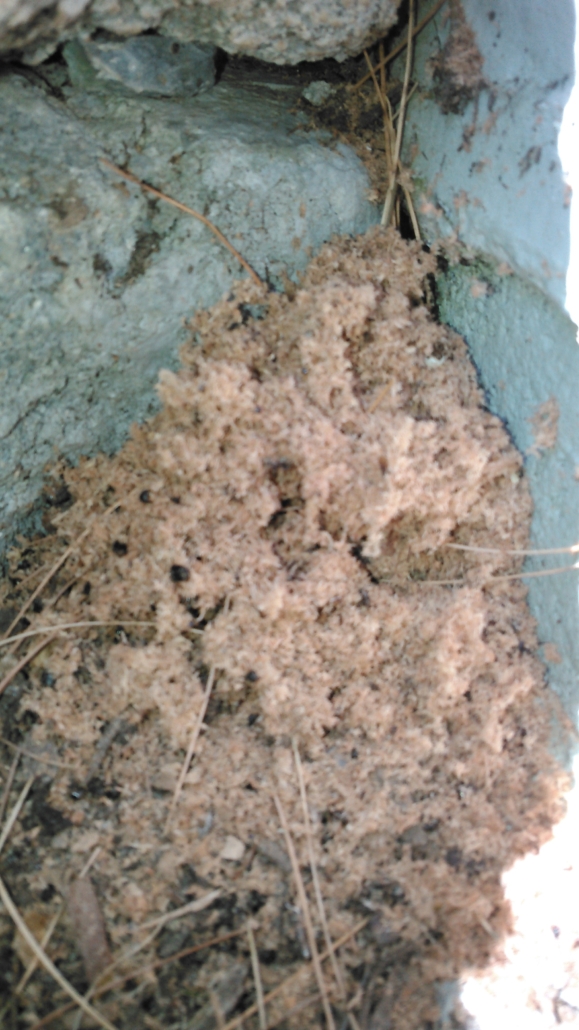
Carpenter ants are the first sign of an infestation. The are normally first seen in early spring. These first ants will be close to the nest. By late spring, activity may be primarily at night. Signs of ants include dead ants near window, doors and sinks or other water sources. The appearance of piles of carpenter ant frass. It looks like sawdust, but has black ant body parts in it.
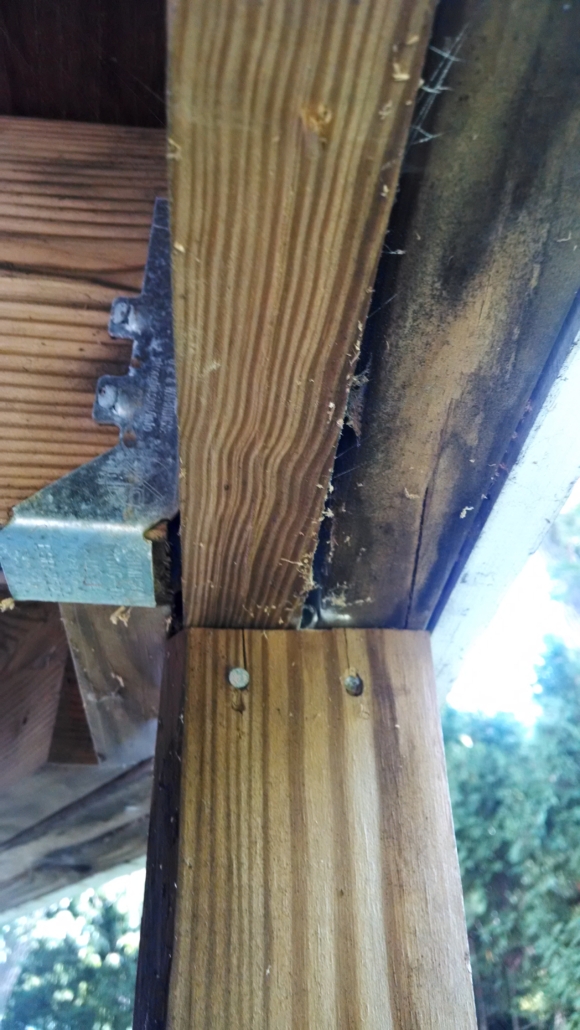
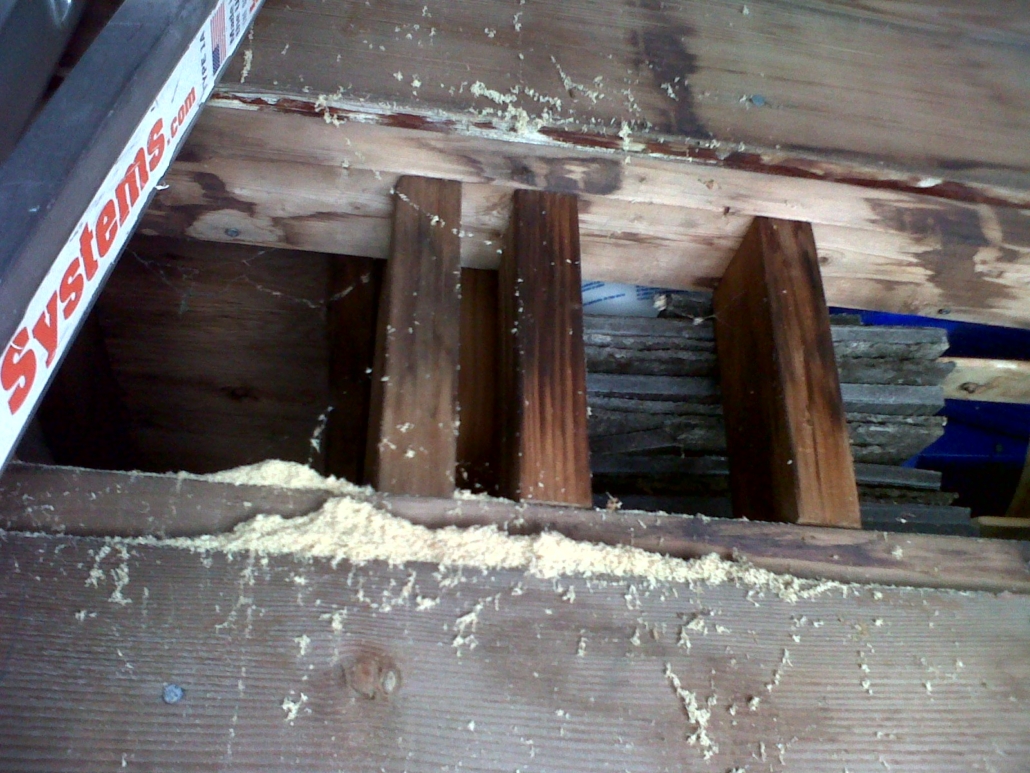
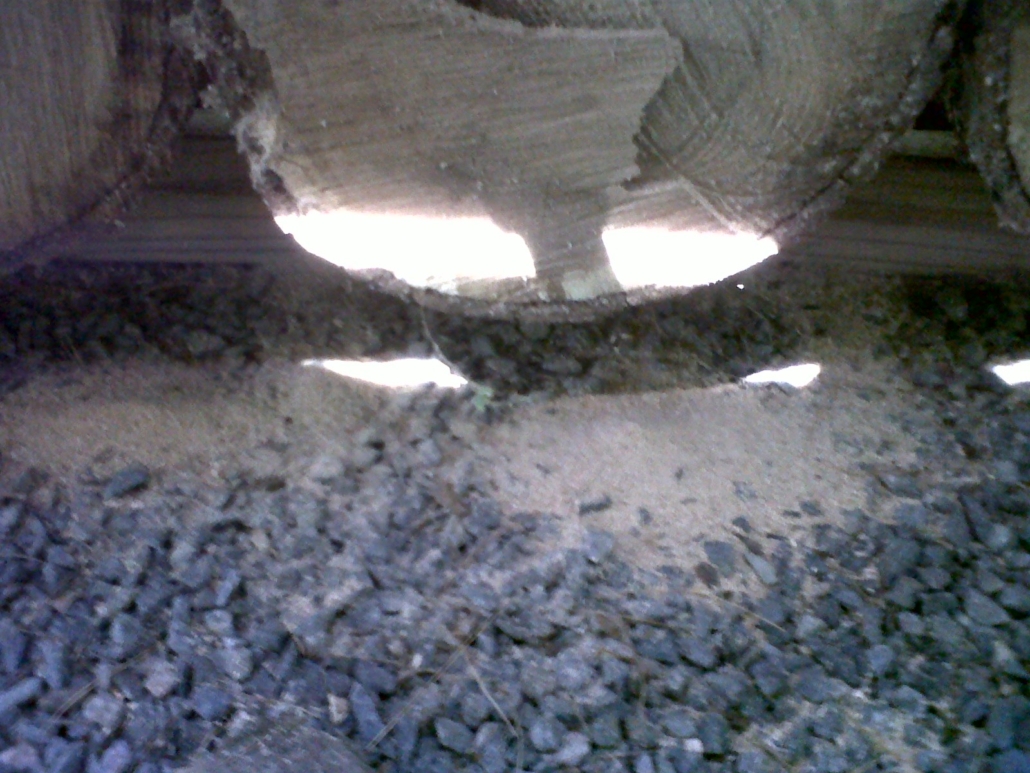
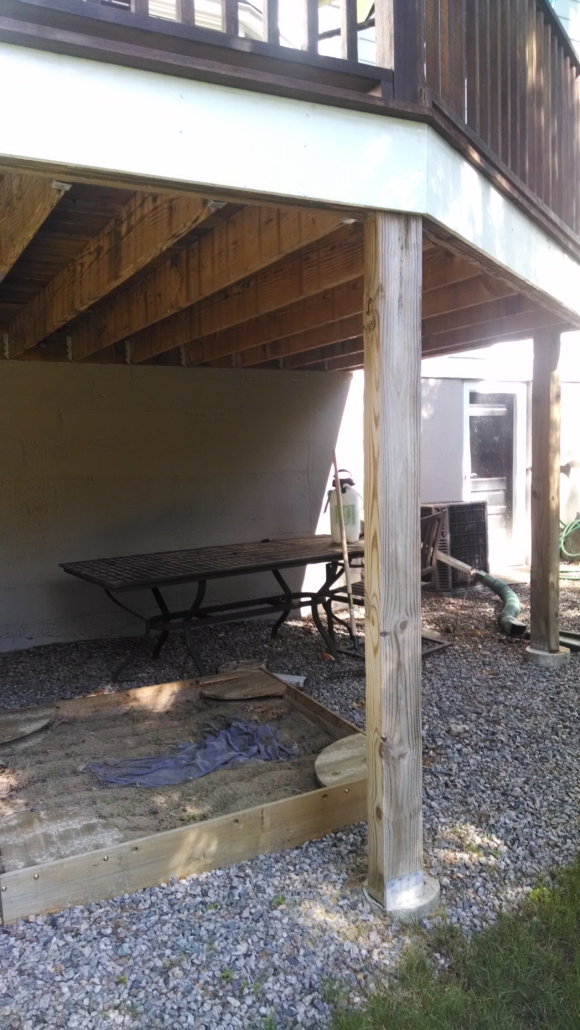
How to control carpenter ants.
The two steps to controlling carpenter ants, first maintain your property and fix any water leaks or leaks from the exterior trim, flashing or roofing that let water in. Second, treat the nest. Treating directly into the nest with dust or aerosol material will have the greatest success. If the nest cannot be located or if it is not accessible, treat the trails to the nest. Carpenter ants must climb up to the nest which makes treating the foundation with a residual insecticide a successful solution. Finally, to locate carpenter ant trails, use bait, at night.
Greenhow Pest Control
Greenhow Pest Control is locally owned and New England’s leading provider of effective, efficient and environmentally friendly pest control services. We have heard and seen nearly everything pest related. Try us. We offer simple standard service plans designed to give our customers great value. Your peace of mind is important to us. We price from a standard rate card and have simple to understand services and policies. That means doing business with Greenhow is easy.
What services do we offer
We offer full pest control services for residential and commercial sites backed by the best guarantee in the business. Greenhow Pest Management is a comprehensive approach to pest control, which emphasizes structural, environmental, biological, and mechanical methods to prevent pest populations from developing. Starting with constant monitoring and thorough inspections inside and outside of the structure to identify and remedy pest-conducive conditions prior to an infestation. A comprehensive approach to pest control, which relies on inside and outside inspections to identify and prevent possible pest infestations.
When pesticides are needed the least toxic material is used. We utilize EPA reduced risk materials The focus is inspection and pest control strategies to control pest populations and prevent re-infestation. We recommend the service frequency that meets your needs to ensure constant monitoring and intervention to prevent pests.
Our regular pest control service frequencies are monthly, every other month and quarterly for residential customers. For commercial customers or multi-unit residential, we offer weekly, every other week and monthly service. We do one-time service for indoor flea and tick control and hornets, wasps and yellowjackets. Mosquito and tick control services have their own service frequencies. Outdoor mosquito is monthly through the season. Tick control is offered a variety of ways depending on tick pressure.
We service you at your property. From our office in Auburndale, Massachusetts we service most of Eastern Massachusetts from Westborough to Boston, north to Andover and east to the ocean communities of Newburyport and Manchester-by-the-Sea, south to Plymouth and west out to Mansfield and Franklin. We service Upper Cape towns of Sandwich, Falmouth, Barnstable, and Yarmouth for termite service. Our service area is wide for termite control. We stay closely centered around our office in Newton for lawn care. We service all or part of Essex County, Middlesex County, Suffolk County, Norfolk County, Plymouth County, Barnstable County, Bristol County, and Worcester County.
Set up your free consultation now. Call 617-964-4733 or use our online form.
